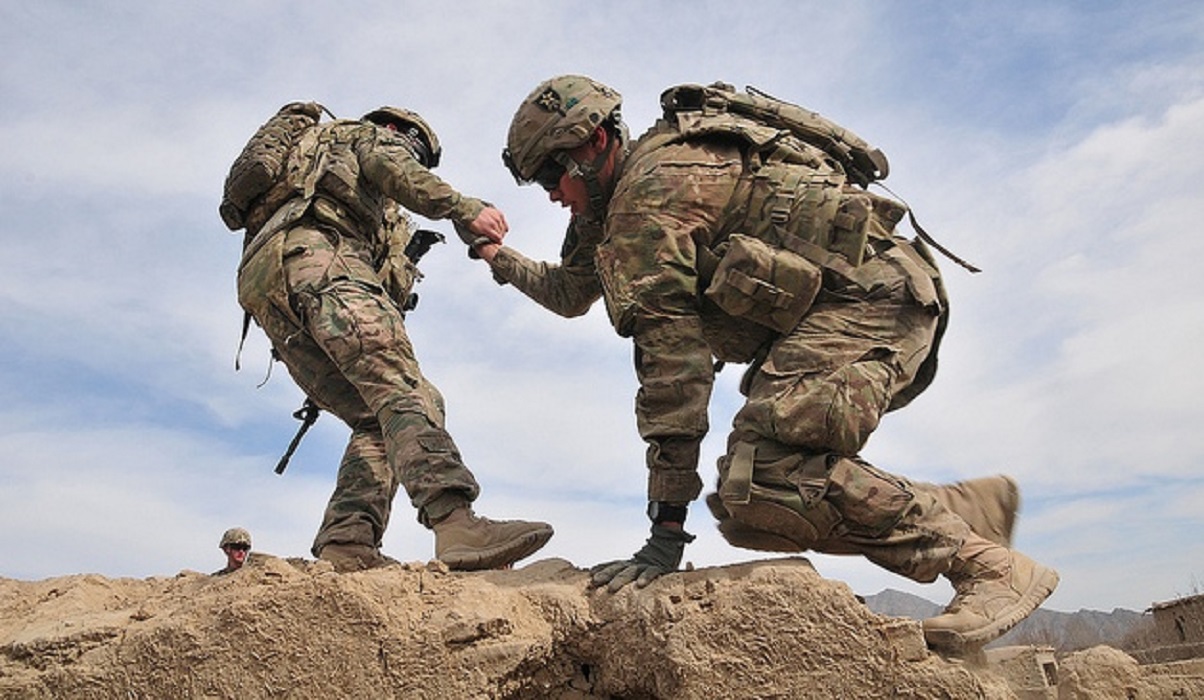Value Living

SURVIVAL Series

Value Living. You must not only value your Christian walk, but you must also value and accept the spiritual maturity levels of your fellow believers in the church.
Romans 14:1-9: “Accept the one whose faith is weak, without quarreling over disputable matters. One person’s faith allows them to eat anything, but another, whose faith is weak, eats only vegetables. The one who eats everything must not treat with contempt the one who does not, and the one who does not eat everything must not judge the one who does, for God has accepted them. Who are you to judge someone else’s servant? To their own master, servants stand or fall. And they will stand, for the Lord is able to make them stand. One person considers one day more sacred than another; another considers every day alike. Each of them should be fully convinced in their own mind. Whoever regards one day as special does so to the Lord. Whoever eats meat does so to the Lord, for they give thanks to God; and whoever abstains does so to the Lord and gives thanks to God. For none of us lives for ourselves alone, and none of us dies for ourselves alone. If we live, we live for the Lord; and if we die, we die for the Lord. So, whether we live or die, we belong to the Lord. For this very reason, Christ died and returned to life so that he might be the Lord of both the dead and the living.”
When walking into a church, one needs to realize that everyone there is at different places in their Christian walk. Paul does not make spiritual maturity a requirement for fellowship. There may be reasons why a Christian might be weak. They may:
- be a new Christian.
- have left a legalistic church.
- have lacked sound teaching.
- need the encouragement to move forward in their faith.
Christians need to distinguish between someone who is weak and someone who is in sin. We are not to look down on our Christian brothers and sisters’ biblical convictions nor discourage them. Everyone is in a different place in their Christian walk. Those who are more mature in their faith are instructed to model and teach how Christ would have His people to live. We are to “pursue what makes for peace and for mutual upbuilding”. (Rom 14:19)
Romans 15:3-7 tells us “May the God of endurance and encouragement grant you to live in such harmony with one another, in accord with Christ Jesus, that together you may with one voice glorify the God and Father of our Lord Jesus Christ. Therefore welcome one another as Christ has welcomed you, for the glory of God.”
Christ fulfilled what was written in God’s word, which brought harmony and glory to God the Father. Likewise, we are to pursue sound doctrine to glorify God. Not only that, we are to live out sound doctrine so that the unsaved “might glorify God for his mercy” (Rom 15:9). And, in turn, we will live in harmony with one another and glorify God with one voice.
The Christian’s Basic Responsibilities to One Another
1. A Christian is not to ignore going to church. “Let us hold fast the confession of our hope without wavering, for he who promised is faithful. And let us consider how to stir up one another to love and good works, not neglecting to meet together, as is the habit of some, but encouraging one another, and all the more as you see the Day drawing near.” (Heb 10:23-25)
Christians are to devote themselves to:
- the apostles’ teaching and the fellowship, the breaking of bread, and prayer. (Acts 2:42)
- serving the church body with their spiritual gifts. (Eph 4:7-16)
2. The Role of Leadership in the Church. Paul instructs church leaders in Titus 2:1; “But as for you, teach what accords with sound doctrine.”
The Role of Pastors and Elders are to Train:
- OLDER MEN on proper Christian character. “Older men are to be sober-minded, dignified, self-controlled, sound in faith, in love, and in steadfastness.” (Titus 2:1-2) This is not some passive teaching or sermonette. Paul instructed Titus to actively teach and train the older men so that they would do likewise with the younger men.
- OLDER WOMEN “to be reverent in behavior, not slanderers or slaves to much wine. They are to teach what is good, and so train the young women to love their husbands and children, to be self-controlled, pure, working at home, kind, and submissive to their own husbands, that the word of God may not be reviled.” (Titus 2:3-5)
The Role of Older Men:
- Older men are to learn and teach sound doctrine.
- They are to learn to be temperate, worthy of respect, self-controlled, and sound in faith, love, and in endurance.
- Encourage the young men to live wisely.
- They are to teach Christian character to the younger men, to be self-controlled. Show themselves in all respects to be a model of good works, and in their teaching show integrity, dignity, and sound speech that cannot be condemned, so that an opponent may be put to shame, having nothing evil to say about them. (Titus 2:6-8)
The Role of Older Women:
- Older women are to learn and teach sound doctrine.
- They are to train the young women to love their husbands and children, to be self-controlled, pure, working at home, kind, and submissive to their own husbands, that the word of God may not be reviled.
The Role of Younger Men:
- Young men are to learn sound doctrine.
- They are to learn godly character from the older men around them.
- Learn to be self-controlled. Do good works. Learn integrity, dignity, and sound speech that cannot be condemned, so that an opponent may be put to shame, having nothing evil to say against the church.
The Role of Younger Women:
- Younger women are to learn sound doctrine and godly character from the older women around them.
- The younger women are to learn how to love their husbands and children, to be self-controlled, pure, working at home, kind, and submissive to their own husbands, that the word of God may not be reviled.
3. Christians are to Preserve the Unity of the Body
Paul writes to the Philippian church in chapter 2 that he wants them to “be of the same mind, having the same love, being in full accord and of one mind.” And to “do nothing from selfish ambition or conceit, but in humility count others more significant than yourselves. Let each of you look not only to his own interests, but also to the interests of others.” “Have this mind among yourselves, which is yours in Christ Jesus.” To be of “one mind, same love, and being full accord and of one mind”, the Church must be like-minded.
Philippians 1:7: “Let your manner of life be worthy of the gospel of Christ…that you are standing firm in one spirit, with one mind striving side by side for the faith of the gospel.”
4. Christians are to Confront One Another in Love Regarding Sin
Sin in the church body brings disharmony and hinders unity. Wayne Mack writes in his book Life in the Father’s House: A Member’s Guide to the Local Church:
“The importance of loving confrontation as outlined in Matthew 18:15-17 for the life of the church cannot be overstated. The primary concerns that Jesus Christ has for His body are its purity (Eph. 5:25-27) and its unity, and neither of those can exist where the process in Matthew 18 is not practiced. That is because the obstacles to purity and unity are sin and conflict, and those maladies cannot be cured without the medicine of loving, biblical confrontation. If there is one thing we learn from the drastic measures taken by God to remedy sin (on the cross) and from the drastic measures enjoined on us by Christ (e.g., Matt. 5:29-30), it is that problems will never be solved by ignoring them. ‘Time heals all wounds’ is one of the most insane statements ever made. Spiritual wounds may harden into scabs or scar over time, but their harmful consequences inevitably continue unless true healing occurs.”
5. Confess Our Sins to One Another
James 5:13-16: “Is anyone among you suffering? Let him pray. Is anyone cheerful? Let him sing praise. Is anyone among you sick? Let him call for the elders of the church, and let them pray over him, anointing him with oil in the name of the Lord. And the prayer of faith will save the one who is sick, and the Lord will raise him up. And if he has committed sins, he will be forgiven. Therefore, confess your sins to one another and pray for one another, that you may be healed. The prayer of a righteous person has great power as it is working.”
If we have wronged someone else, either knowingly or unknowingly, and have been made aware of it, we need to ask that person’s forgiveness first, then go and confess it to God. God wants us to have nothing between ourselves and others. In Matthew 5:23–24, Jesus says: “If you are offering your gift at the altar and there remember that your brother has something against you, leave your gift there before the altar and go. First be reconciled to your brother, and then come and offer your gift.”
Sometimes people have secret sins that are not easy for others to see. Secret sins can seem harmless because no one else is involved. These willful sins still hinder our relationship with God and our church family which could lead to more serious sin. So, it would be wise to confess this sin to a faithful friend, someone whom you know will keep the matter confidential, and pray for you. God’s intention for confession is to bring us back into sweet communion with Him and our fellow Christian brothers and sisters.
James 5:16: “Therefore, confess your sins to one another and pray for one another, that you may be healed.”
6. Pray for One Another
- Praying at all times in the Spirit, with all prayer and supplication. (Ephesians 6:18)
- Keep alert with all perseverance, making supplication for all the saints. (Ephesians 6:18)
- Pray that words may be given to one another in opening their mouths boldly to proclaim the mystery of the gospel, that they may declare it boldly, as we ought to speak. (Ephesians 6:19)
- Do not cease to give thanks for your Christian brothers and sisters, remembering them in our prayers. (Ephesians 1:16)
- Pray that the sharing of your faith may become effective for the full knowledge of every good thing that is in us for the sake of Christ. (Philemon 6)
Christian unity is worked out by having one spirit, one Gospel, one mind, and one common goal. When Moses “told the people all the words of the LORD and all the rules. All the people answered with one voice and said, ‘All the words that the LORD has spoken we will do.’” (Exodus 24:3)
Like Moses, today’s pastors and church leaders are to teach “all the words of the LORD and all the rules.” And, the church congregation should be saying, “All the words that the LORD has spoken we will do.” Therefore, Paul instructs pastors and teachers to equip the saints “until we all attain to the unity of the faith and of the knowledge of the Son of God, to mature manhood, to the measure of the stature of the fullness of Christ.” (Ephesians 4:13)
The chief aim of valuing and loving one another is to glorify God and “by this all people will know that you are my disciples” (John 13:31-35). If we are that dedicated to loving our church family, what a testimony it will be to those in the world!
By Rob Robbins, May 2019, churchfm316.com
Editing and Proofreading by Laura Robbins

